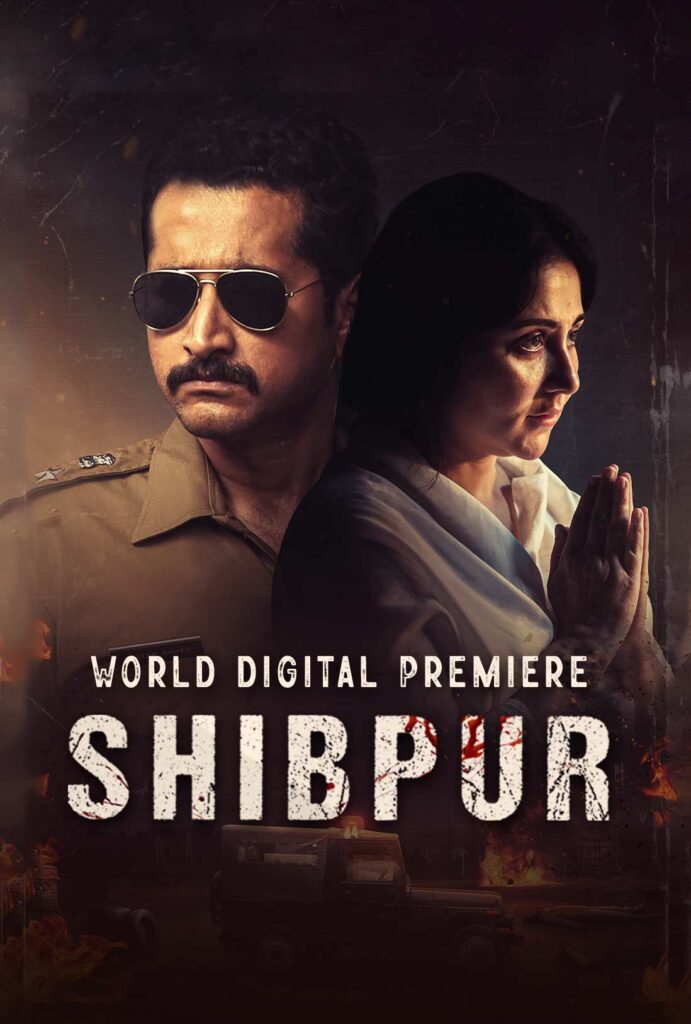Shibpur
Although a victim of its own Build up, Shibpur tries to stay true to its genre.
Shibpur directed by Arindam Bhattacharya is a faithful genre film in the vein of commercial gangster drama rarely done in Bengali films. The spectrum of Bengali films has rarely accommodated space for gangster crime dramas, and the attempts in this genre have always lacked in originality and grittiness. Although done many times in other industries,’ Shibpur’ is one of the very few instances of genre films in our industry.
The makers have plucked some real events and mixed loads of fictional scenarios as the films based on infamous gang lords usually do. ‘Shibpur’ looks promising when it is establishing the political and social backdrop the story will be set in. The moody yellowish dent in the lighting works absolutely fine in setting up the turmoil, chaos prevailing in the titular Shibpur back then. The dimly lit alleys, the fear and paranoia engulfing those areas help to the world building which is done very well. The background music also amplifies the unrest in various scenes. The hand held shaky camera movements also acts as a necessary catalyst in the world building. The gritty, unhinged treatment is also worth mentioned, owing to history of gangster dramas here, the violence was nothing but timid despite the fact that it released in theatres first.
Dialogues, Music & Direction
The political connection and government interventions made the setup instantly believable and relevant. The premise, the geography, and the business connections all are deeply rooted in the terrains of Shibpur, it doesn’t feel like a rip-off. Mandira Devi whose husband an honest government officer is murdered in front of her eyes vows to take vengeance on the perpetrators, the motivations for her vengeance are perfectly set up.
The problem is how the characters are handled after the world-building is done, the rise of the protagonist Mandira Devi is shown so haphazardly merely relying on fast-cut montages that it feels like a certain jolt in the narrative approach it was following, thus the whole point of world-building seems incomplete. As the film goes on, there are some very questionable instances of scene transitions that hamper the flow. The conflict between central characters seems half-baked, it seems like the film has been missing at least fifteen to twenty minutes in between. The film doesn’t even care to emphasize the reason for the conflict between the characters of Kharaj and Rajatabha Dutta. The film demanded more cautious characterization which totally absconds the film and makes it very confusing in the second half. The violence although done pretty well does not hold up in the second half, as the motivations behind those aren’t fully developed. Although there is a political subtext established, it is never utilized properly which severs the film from relevance again.
The protagonist seems to have a cakewalk in eliminating her rivals in the end; it could have been believable if the extent of the power she had gathered was shown in a meticulous manner. The narrative falls victim to the trope of making the protagonist invincible as well as righteous and messing up.
The rise of a female gangster could have easily been utilized as an ideal grazing ground for a feminist perspective, but despite only one or two scenes, the angle is never utilized. The family connection was absent; the script never makes room for the mother-daughter relation, which could have added more empathy for the lead. Although the performances are spectacular, the characters seem so distant that you can’t root for anyone, not even for the protagonist herself which alienates the emotional arc completely from the film.
Despite those shortcomings, the film was thoroughly watchable because of the performances extracted from the cast. Rajatabha Dutta has delivered his best despite the poorly written character he gets. Kharaj Mukherjee is the show stealer; he is proving again and again his calibre as a fantastic artist. Mamata Shankar is the surprise package; giving her a role like this also deserves praise. In every scene she is in, you will be in awe of the range she possesses.
Swastika Mukherjee has channelled Mandira Devi in her veins, from a timid housewife to a ruthless gangster; she has brilliantly handled the subtle change in her mental and physical manoeuvre.
Parambrata Chatterjee comes up with another measured performance with a dialect which seems effortless and authentic.
The twist in the climax seems very farfetched and doesn’t work; it is redundant and unfaithful to the intelligence of the viewers.
Considering the world building and the performances, Shibpur impresses but it falls victim to its own introspective build up. The main reason is the editing which seems very abrupt during the latter half, it doesn’t let us concentrate in one scene and rapidly jumps to the next scene.
Shibpur is watchable for its cautious build up, the overall grittiness ,the spectacular performances if not for anything.




